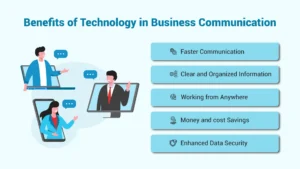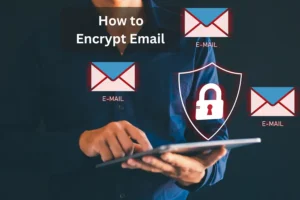According to the FBI, 58% of Americans have experienced a data breach of some kind. Of those, 21% reported compromised Financial Accounts (banking, credit, PayPal, Venmo), 19% had their Email Accounts hacked, and 18% experienced a breach in the security of their Social Media Accounts. Could using a Password Manager reduce those numbers? Let’s dive in!
Why Are Data Breaches So Common?
When asked by PasswordManager.com and YouGov (an international data analytics and market research group), 65% of people polled said they don’t trust password managers…despite 60% of that same group experiencing a data breach.
Risky Password Habits
Sometimes, even the best of us might rely on less secure methods of password management – like keeping detailed password spreadsheets, or using the same ones across multiple platforms. This is a risk because the moment a hacker has one of your passwords, they will attempt to use it on any other accounts linked to you…which might also include gaining access to that handy spreadsheet!
Ignoring Bad Habits
Despite all of this, folks still might not be entirely convinced that poor password habits are what is leaving them open to attacks. In fact 23% of survey respondents said they know these are bad habits and don’t care! Often though, this a habit from days gone by – 10 to 15 years ago threats were minuscule compared to today, and these were some of the methods commonly used to remember passwords. Truth is, they probably weren’t a good idea at the time, and they are an even worse idea now.
Should You Use Your Browser’s Password Manager?
Browser Security Concerns
These days, many people use Password Managers. There are a lot of provider options and you may be wondering, ‘is the one that comes built into my browser a secure choice?’. Our answer is a resounding No, not really! Your browser is notorious for collecting your data and giving it to the sites you visit.
It reports the type of browser and even goes as far as to list the hardware specs of your computer. It may not sound like a big deal, but we find it incredibly invasive for information you never gave voluntarily – some sites even go as far as to track your mouse movements.
Risks of Unprotected Passwords
Additionally, with some browsers a master password is not required to access your password list – that means anyone with access to your computer can access your passwords… and steal them! What’s even scarier is that some of these sites use key-loggers. Key-loggers can be used to watch every button you press but in this situation, they are used to track your keystrokes and siphon your browsing history/shopping habits in order to market to you. Not a great use of the key-logging capabilities, but not as nefarious as some.
What Does Quality Management Software Include?
Security Features of a Password Manager
It is our opinion that a Password Manager is your best bet for keeping your login information secure. A Password Manager takes all your passwords, encrypts them, and then locks them up so that access is granted using a “Key”, or Master Password. The BEST managers will even create secure, randomized passwords for you.
Just in case your information falls into the wrong hands, even with the use of key-loggers the password they have obtained from you will be scrambled when they try to put it in. A cool feature that some password managers have is clearing your clipboard after a few seconds to make sure that you don’t unintentionally paste your password somewhere.
Additional Benefits of Password Managers
If all of that isn’t enough to convince you to make the switch: Password Managers allow you to install browser extensions for quick login access, easily change and update info, share login access securely, store more than just passwords (security questions, shopping profiles, etc), and you can even still use the AutoFill feature! These programs can make it harder for attackers to gain access to your login info if your computer has fallen into the wrong hands.
Need Help or Recommendations?
Of course if you’re curious about which Password Managers we recommend, or at all worried about your system’s security in general, don’t hesitate to Contact Us. We are here to help keep your data safe and your network secure!
Author
-

Jay S. Allen, MCP, MCSA, MCSE, MCSE+ Security, is an experienced IT professional with more than 20 years in the industry. He specializes in delivering enterprise-level cybersecurity and IT support solutions tailored to small and mid-sized businesses. Through Techno Advantage, Jay is dedicated to helping organizations strengthen their security posture and achieve greater efficiency through smart, scalable technology solutions.











